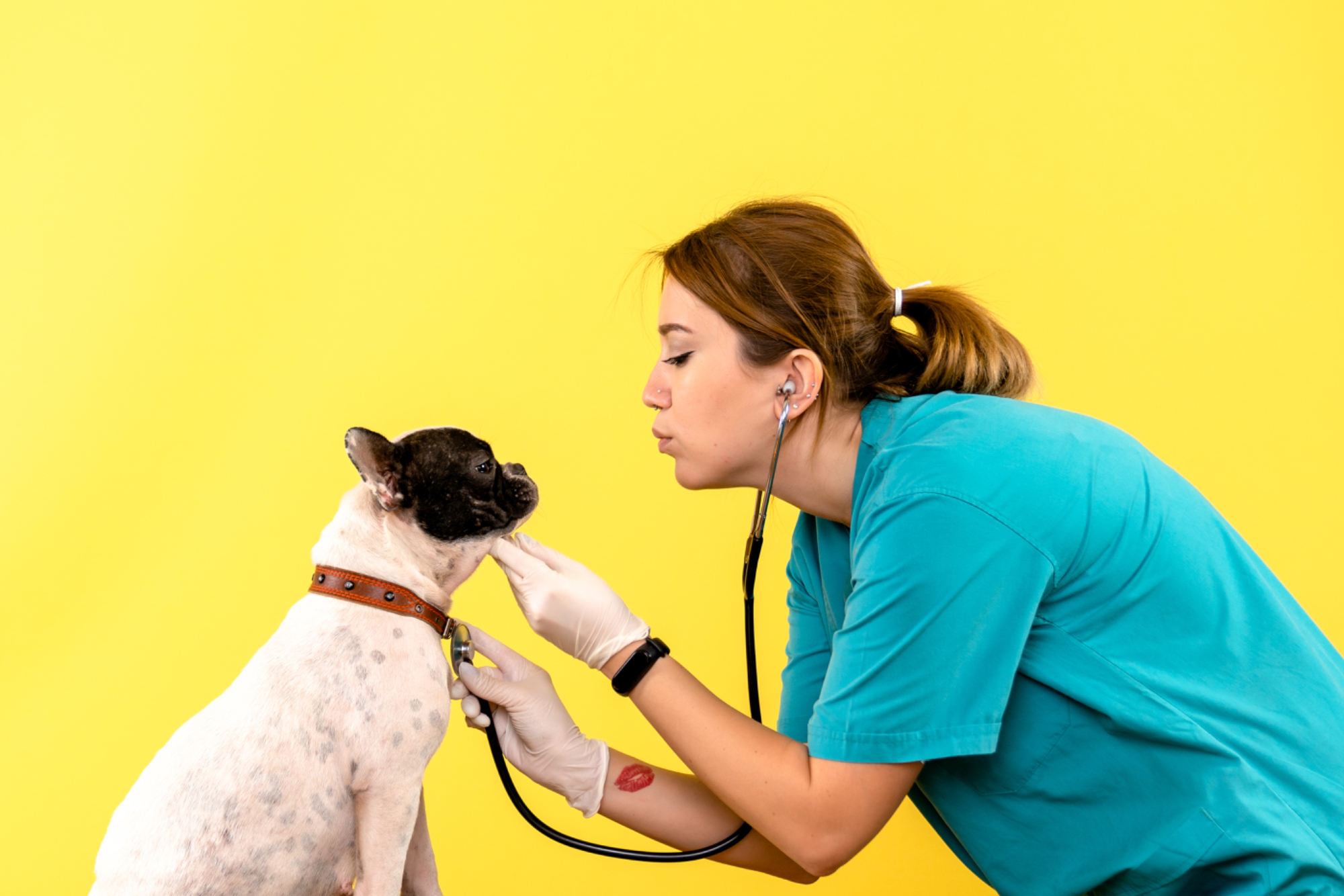
Regular vet check-ups are essential for pets’ overall health and ensuring a long, happy life. These visits allow for early detection of potential health issues, effective preventive care, and guidance on proper nutrition and behavior.
As pet owners, we often focus on day-to-day care but may overlook the value of routine veterinary visits. Yet, these appointments are vital for monitoring your pet’s well-being and preventing avoidable health problems.
This article explores the benefits of vet check-ups for pets, highlighting their role in improving the quality of life for your pets.
Vet Check-ups for Pets Endure Early Detection of Health Issues
One of the primary benefits of vet check-ups is the early detection of potential health problems. Pets are masters at hiding discomfort, making it challenging for owners to notice symptoms until an illness is advanced. During a vet check-up, a thorough physical examination can reveal underlying issues like heart disease, kidney dysfunction, or infections.
Research by the American Animal Hospital Association (AAHA) indicates that pets receiving regular check-ups are 25% more likely to receive life-saving treatments early. Early intervention not only increases the chances of successful treatment but also reduces the financial burden of addressing more severe conditions later on.
For instance, identifying a thyroid issue early can prevent complications like weight loss, lethargy, and hair loss. Similarly, catching dental diseases in their initial stages can avert painful infections and costly surgeries.
Preventive Vaccinations as a Key Part of Vet Check-ups
Vet check-ups are the perfect time to ensure your pet’s vaccinations are up to date. Vaccines are crucial for protecting pets from serious and potentially fatal diseases such as rabies, distemper, and feline leukemia.
Unvaccinated pets are at greater risk of contracting contagious illnesses, especially when they come into contact with other animals. According to the Centers for Disease Control and Prevention (CDC), routine vaccinations have drastically reduced the prevalence of life-threatening diseases in pets over the past few decades.
Vaccinations not only safeguard your pet but also contribute to community health by reducing the spread of zoonotic diseases.
Regular Vet Check-ups Help Control Parasite
Parasites, including fleas, ticks, and worms, can wreak havoc on your pet’s health. Left untreated, these parasites may lead to conditions like anemia, skin infections, and even organ damage. Vet check-ups provide an opportunity for veterinarians to check for signs of parasitic infections and recommend appropriate preventive treatments.
Heartworm disease, for example, can be fatal if not addressed early. Regular screenings during check-ups can detect this condition in its early stages, and preventive medications can keep your pet safe. Year-round parasite prevention, tailored to your pet’s lifestyle and environment, ensures they remain healthy and comfortable.
Vet Check-ups for Pets are Necessary to Maintaining Healthy Weight
Obesity is a growing concern among pets, with studies showing that more than 50% of dogs and cats in the United States gain weight. Excess weight can lead to various health problems, including diabetes, arthritis, and decreased life expectancy.
During a vet check-up for pets, your pet’s weight is carefully assessed, and a veterinarian can provide personalized advice on diet and exercise. They may recommend changes to portion sizes, suggest high-quality pet food, or develop a tailored fitness plan to ensure your pet maintains a healthy weight.
Monitoring your pet’s weight regularly helps prevent complications associated with obesity, such as joint pain or cardiovascular issues. By addressing weight concerns early, you can promote a more active and enjoyable life for your pet.
Dental Health: A Crucial Aspect of Vet Check-ups
Oral health plays a critical role in your pet’s overall health. During a vet check-up, the veterinarian examines your pet’s teeth and gums, looking for signs of dental disease, such as tartar buildup, gum inflammation, or loose teeth.
Poor dental hygiene can lead to painful conditions like gingivitis or periodontal disease. In severe cases, bacteria from infected gums can enter the bloodstream, causing systemic infections that affect vital organs like the heart and kidneys.
The American Veterinary Dental Society (AVDS) reports that 80% of dogs and 70% of cats show signs of dental disease by age three. Regular check-ups, combined with professional cleanings and at-home dental care, can prevent these issues and enhance your pet’s overall quality of life.
Behavioral Assessments During Vet Check-ups
Changes in your pet’s behavior can sometimes indicate underlying health problems. For example, increased aggression, withdrawal, or sudden house-soiling may signal pain, anxiety, or medical issues. Vet check-ups provide a platform for discussing any behavioral changes you’ve observed.
Veterinarians can offer expert advice on addressing these issues, whether through medical intervention, training, or environmental adjustments. Resolving behavioral problems early strengthens the bond between you and your pet and ensures a harmonious living environment.
Strengthening the Pet-Vet Relationship
Establishing a trusting relationship with your veterinarian is invaluable for your pet’s health. Routine vet check-ups allow your vet to become familiar with your pet’s medical history, personality, and unique needs. This familiarity leads to more accurate diagnoses and personalized care over time.
Moreover, regular visits help your pet become comfortable with the veterinary clinic, reducing stress during future appointments. A positive vet experience benefits both you and your pet, fostering a collaborative approach to their health and well-being.
Guarantee Peace of Mind for Pet Owners
Vet check-ups offer more than just physical health benefits—they provide peace of mind for pet owners. Knowing that your pet is healthy and receiving the best care reduces anxiety and helps you feel confident in your ability to care for them.
Routine veterinary visits allow you to stay informed about your pet’s health, address concerns promptly, and ensure their needs are consistently met. This proactive approach enhances your pet’s quality of life and strengthens your relationship with them.
Final Thoughts
The benefits of vet check-ups for pets cannot be overstated. These routine visits play a vital role in preventive care, early detection of illnesses, and maintaining overall well-being. By committing to regular check-ups, you’re investing in your pet’s health and longevity.
Remember, a healthy pet is a happy pet. Regular vet visits are a small effort that yields significant rewards, ensuring your furry friend stays by your side for years to come.
Frequently Asked Questions (FAQs)
- How often should I take my pet for a check-up?
Young and healthy pets should visit the vet at least once a year. Senior pets or those with existing health conditions may require more frequent visits, typically every six months.
- Are vaccinations necessary for indoor pets?
Yes, even indoor pets need vaccinations. They can still be exposed to diseases through contact with other animals or contaminated surfaces, making vaccines an essential part of their health care.
- Can I detect health issues without visiting the vet?
While some health problems may show visible symptoms, many remain hidden until they’re advanced. Regular vet check-ups for pets are crucial for early detection and effective treatment.
- What should I bring to a vet check-up?
Bring your pet’s medical records, a list of any medications they’re taking, and notes on any changes in their behavior, diet, or activity levels.
- Why are dental check-ups important for pets?
Dental check-ups help prevent oral health issues like tartar buildup, gum disease, and tooth loss. Poor dental hygiene can lead to systemic infections, affecting your pet’s overall health.
